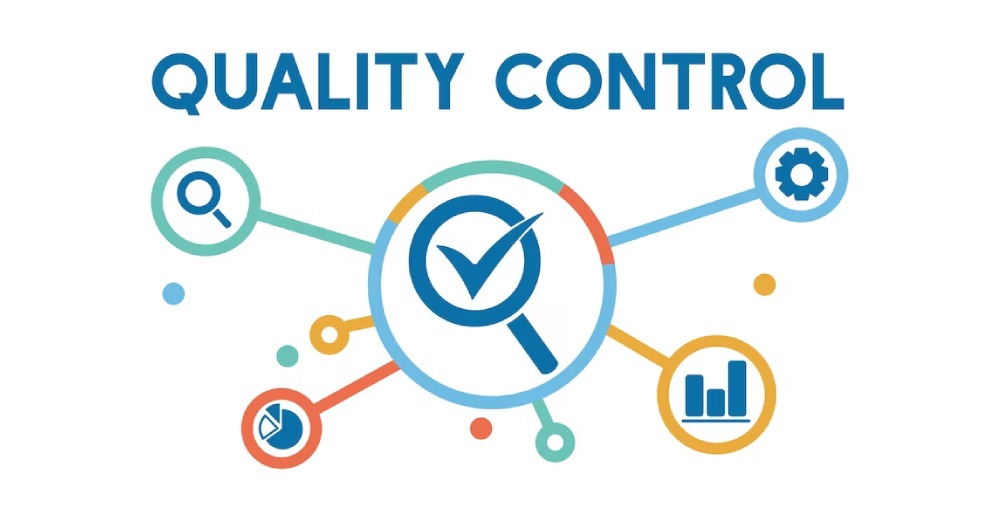Quality control (QC) services play a crucial role in maintaining the standards and reliability of products across industries. Whether in manufacturing, pharmaceuticals, electronics, or consumer goods, quality control is the system that monitors and verifies products’ conformity to specified standards. This not only enhances product quality but also strengthens brand reputation, boosts customer satisfaction, and reduces operational risks. Here, we explore the essentials of quality control services, various methodologies, and how they benefit businesses worldwide.
1. What are Quality Control Services?
Quality control services involve monitoring, testing, and inspecting products at various stages of production to ensure they meet set quality standards. By examining components and final products, QC teams detect defects, non-conformities, and areas needing improvement before products reach the end consumer. This process is critical for reducing recalls, minimizing waste, and ensuring customer satisfaction.
2. Types of Quality Control Services
A. Pre-Production Inspections (PPI)
Pre-production inspections assess raw materials and components before production begins. This stage ensures that all materials meet the required quality standards, reducing the risk of defects later in the manufacturing process. PPIs also verify the accuracy of specifications to meet the client’s requirements.
B. During Production Inspections (DUPRO)
DUPRO is carried out when 20-30% of production is complete, providing early insights into any quality issues. This stage allows corrective actions to be taken immediately, preventing flaws from affecting the rest of the production run. DUPRO helps manufacturers avoid the cost of producing large quantities of defective products.
C. Final Random Inspection (FRI)
FRI occurs once production is 100% complete, just before shipping. Samples are taken from finished products and evaluated against specific quality standards. FRIs are essential for verifying that products meet the agreed-upon quality level, quantity, and packaging requirements.
D. Container Loading Supervision (CLS)
For manufacturers shipping products internationally, CLS is critical. This service ensures that the correct quantity and quality of goods are loaded, reducing the risk of damage or errors during transit. CLS verifies loading conditions and secures goods to prevent damage.
3. Key Benefits of Quality Control Services
A. Enhanced Product Quality
Through regular inspections and testing, quality control services help improve the final product’s quality. Identifying defects early and refining the manufacturing process allows businesses to deliver consistent, high-quality products.
B. Cost Reduction and Waste Minimization
Detecting and addressing issues early in production saves costs associated with recalls, repairs, and replacements. By minimizing waste and reducing rework, QC services help optimize the entire production process and lower overall expenses.
C. Strengthened Brand Reputation
High product quality reflects positively on a brand. By consistently delivering quality-assured products, companies earn customer trust and build a strong reputation in the market. Satisfied customers are more likely to return and recommend the brand, which translates into long-term loyalty and higher sales.
D. Improved Compliance with Industry Standards
In many industries, adherence to strict quality regulations is mandatory. Quality control services ensure products meet international standards, regulatory requirements, and certifications, reducing the risk of legal issues or market rejections.
4. Techniques Used in Quality Control Services
A. Statistical Process Control (SPC)
SPC is a method that uses statistical tools to monitor and control the production process. By analyzing data from various stages, SPC helps detect trends, enabling timely corrective actions before issues escalate.
B. Six Sigma
Six Sigma is a quality control methodology that aims to reduce defects to a minimal level by analyzing and improving processes. This approach focuses on identifying the root causes of defects and eliminating them through process improvements, contributing to higher quality standards.
C. ISO Audits
ISO audits are conducted to ensure a company’s adherence to ISO standards. ISO certification is a recognized symbol of quality, and quality control services can help organizations implement and maintain the necessary standards to earn and keep their certification.
D. Automated Testing and Inspection
In sectors like electronics and automotive, automated testing is widely used to evaluate complex components. Automated systems provide high accuracy and speed, ensuring a consistent level of quality across the board.
5. Choosing the Right Quality Control Partner
Selecting a trusted QC service provider is essential for effective quality management. Look for companies with industry-specific experience, as they are more likely to understand the nuances of your products and compliance requirements. Ensure the provider has a proven track record, robust technology, and qualified inspectors to support your quality goals.
Conclusion
Quality control services are a pivotal part of any production process, enabling businesses to deliver reliable, compliant, and customer-approved products. By choosing the right QC strategy and partner, companies can enhance product quality, cut costs, and build a solid reputation, ultimately achieving a competitive advantage in their market.





